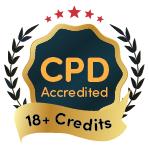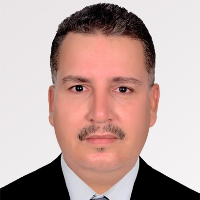5th International Conference on
Global Entrepreneurship Summit 2026
August 19-20, 2026 | Toronto, Canada

Phone: +44 2045866818
WhatsApp: +44 2045864995
Global Entrepreneurship Summit 2026

Higher Institute of Nursing Professions and Health Techniques, Morocco
Abstract:
Plant taxonomy is used to identify, describe, and classify plants at the species level or other taxonomic levels. This study aims to analyze university teachers' views on teaching plant taxonomy, the difficulties students encounter in learning plant taxonomy, and the causes of the shortage of taxonomists. We conducted a survey consisting of closed and open-ended questions to Moroccan university teachers (n = 24). The data were analyzed using inductive and deductive content analysis. The results showed that all university teachers considered taxonomists to be scientists and plant taxonomy to be a dynamic, highly scientific, and descriptive discipline. They stated that the taxonomist community is in crisis because of the shortage of plant taxonomists and the decrease in the quality of training provided at the university. The main challenges related to learning plant taxonomy were the predominance of traditional teacher-centered methods, insufficient time and teaching resources devoted to teaching, and Latin nomenclature. Difficulties related to the concept of evolution and the diversity of classifications were also mentioned, particularly in the large group of angiosperms. In addition, this research shows that the financial, human, institutional, pedagogical, and didactic resources devoted to teaching plant taxonomy are insufficient and do not allow for the use of teaching methods that promote learning. The way in which plant taxonomy is taught is important, and when it is considered difficult, this can lead to a reluctance to study plant species and may be one of the reasons for the decline in the number of plant taxonomists in Morocco.
Biography:
Associate Professor at the Higher Institute of Nursing Professions and Health Techniques (ISPITS) in Dakhla, Morocco, specializing in biology, health sciences, and education sciences. He holds a PhD in didactics and education sciences. He has worked as a secondary school teacher and trainer at the education and training center and currently works as a professor in higher education. His academic research focuses on issues related to secondary and higher education. He has published and contributed to peer-reviewed and highly indexed journals. His research aims to improve the teaching and learning of health sciences in higher education and life and earth sciences in secondary and higher education. His research interests include didactics, pedagogy, health sciences, biological sciences, educational sciences, etc.
